So far this Black History Month, we’ve shared a reading list from Camille Dungy, a poetry-themed list, and a list of books by Black authors that had been adapted into films. Today, we’d like to share a list of nonfiction books we think are worth a read.
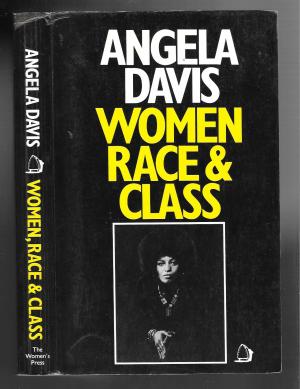 Women, Race, & Class by Angela Y. Davis, 1981. Described as “a powerful study of the women’s liberation movement in the U.S., from abolitionist days to the present, that demonstrates how it has always been hampered by the racist and classist biases of its leaders,” Davis’ message is clear: If we ever want equality, we’re gonna have to fight for it together. The Los Angeles Times Book Review said of the book, “As useful an exposition of the current dilemmas of the women’s movement as one could hope for.” Davis, political activist, academic, and author, was a keynote speaker for this year’s Black History Month celebration at CSU. Read more about her in our recent Black History Month feature post.
Women, Race, & Class by Angela Y. Davis, 1981. Described as “a powerful study of the women’s liberation movement in the U.S., from abolitionist days to the present, that demonstrates how it has always been hampered by the racist and classist biases of its leaders,” Davis’ message is clear: If we ever want equality, we’re gonna have to fight for it together. The Los Angeles Times Book Review said of the book, “As useful an exposition of the current dilemmas of the women’s movement as one could hope for.” Davis, political activist, academic, and author, was a keynote speaker for this year’s Black History Month celebration at CSU. Read more about her in our recent Black History Month feature post.
Stamped from the Beginning: The Definitive History of Racist Ideas in America by Dr. Ibram X. Kendi, April 2016, won the 2016 National Book Award for Nonfiction. He was a keynote speaker at CSU during the 2017 Black History Month celebration. Stamped is compelling, provocative, and timely. The Root, who says the book should be required reading, describes it this way, “Kendi has done something that’s damn near impossible: write a book about racism that breaks new ground, while being written in a way that’s accessible to the nonacademic. If you’ve ever been interested in how racist ideas spread throughout the United States, this is the book to read.”
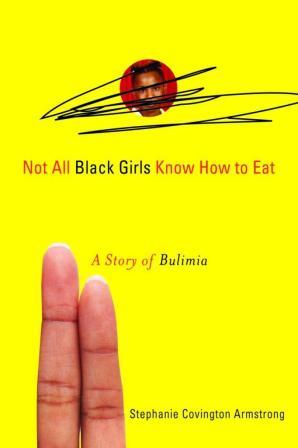 Not All Black Girls Know How to Eat by Stephanie Covington-Armstrong, August 2009. Her website describes the book this way: “Covington-Armstrong vividly describes her struggle as a black woman with bulimia. Her battle with an eating disorder takes a unique perspective as this disease is consistently portrayed as a white woman’s problem. This insightful and moving narrative traces the background and factors that contributed to Stephanie’s eating disorder. Moving coast to coast, she tried to escape her self-hatred and obsession by never slowing down, thus being unaware that she was caught in downward spiral emotionally, spiritually, and physically. Not All Black Girls Know How to Eat is the first book by and among black women about eating disorders and in it, Stephanie answers many questions about why black women often do not seek traditional therapy for emotional problems.” The book is a compelling narrative, with the tale of Covington-Armstrong’s family background and childhood every bit as captivating as the story of her eating disorder.
Not All Black Girls Know How to Eat by Stephanie Covington-Armstrong, August 2009. Her website describes the book this way: “Covington-Armstrong vividly describes her struggle as a black woman with bulimia. Her battle with an eating disorder takes a unique perspective as this disease is consistently portrayed as a white woman’s problem. This insightful and moving narrative traces the background and factors that contributed to Stephanie’s eating disorder. Moving coast to coast, she tried to escape her self-hatred and obsession by never slowing down, thus being unaware that she was caught in downward spiral emotionally, spiritually, and physically. Not All Black Girls Know How to Eat is the first book by and among black women about eating disorders and in it, Stephanie answers many questions about why black women often do not seek traditional therapy for emotional problems.” The book is a compelling narrative, with the tale of Covington-Armstrong’s family background and childhood every bit as captivating as the story of her eating disorder.
So You Want To Talk About Race by Ijeoma Oluo, January 2016. GoodReads describes the book as, “A current, constructive, and actionable exploration of today’s racial landscape, offering straightforward clarity that readers of all races need to contribute to the dismantling of the racial divide,” and the author as, “an exceptional writer with a rare ability to be straightforward, funny, and effective in her coverage of sensitive, hyper-charged issues in America.” A Publishers Weekly review of the book says, “She’s insightful and trenchant but not preachy, and her advice is valid. For some it may be eye-opening. It’s a topical book in a time when racial tensions are on the rise.”
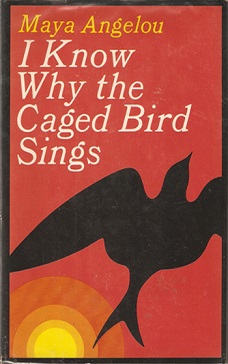 I Know Why the Caged Bird Sings by Maya Angelou, 1969. The first in a seven-volume series, written when Angelou was 40 years old, this book is a coming-of-age story that illustrates how strength of character and a love of literature can help overcome racism and trauma. The autobiography follows the early years of American writer and poet Maya Angelou, from the age of three until she turns 16. Angelou was challenged by her friend, author James Baldwin, and her editor, Robert Loomis, to write an autobiography that was also a piece of literature. She succeeded so well that the book is sometimes called a work of “autobiographical fiction.” Some of the story’s themes are a celebration of Black motherhood; a critique of racism; the importance of family; and the quest for independence, personal dignity, and self-definition. Caged Bird was nominated for a National Book Award in 1970 and remained on The New York Times paperback bestseller list for two years. In total, it is a work both heartbreaking and inspiring.
I Know Why the Caged Bird Sings by Maya Angelou, 1969. The first in a seven-volume series, written when Angelou was 40 years old, this book is a coming-of-age story that illustrates how strength of character and a love of literature can help overcome racism and trauma. The autobiography follows the early years of American writer and poet Maya Angelou, from the age of three until she turns 16. Angelou was challenged by her friend, author James Baldwin, and her editor, Robert Loomis, to write an autobiography that was also a piece of literature. She succeeded so well that the book is sometimes called a work of “autobiographical fiction.” Some of the story’s themes are a celebration of Black motherhood; a critique of racism; the importance of family; and the quest for independence, personal dignity, and self-definition. Caged Bird was nominated for a National Book Award in 1970 and remained on The New York Times paperback bestseller list for two years. In total, it is a work both heartbreaking and inspiring.
When They Call You a Terrorist: A Black Lives Matter Memoir by Patrisse Khan-Cullors and Asha Bandele, January 2018. GoodReads describes this book as, “A poetic and powerful memoir about what it means to be a Black woman in America—and the co-founding of a movement that demands justice for all in the land of the free,” and says of Khan-Cullors, “Championing human rights in the face of violent racism, Patrisse is a survivor. She transformed her personal pain into political power, giving voice to a people suffering in equality and a movement fueled by her strength and love to tell the country—and the world—that Black Lives Matter.” English department communications coordinator Jill Salahub recently finished reading the book, and says, “I started the book expecting it to be more specifically about the founding of the Black Lives Matter movement, how that happened, and it was in part, but the story of the lives lived and how that experience led to the necessity of the movement is what I found most compelling about the book. It reminded me that you don’t fully understand anything until you take the time to listen to someone’s story.”
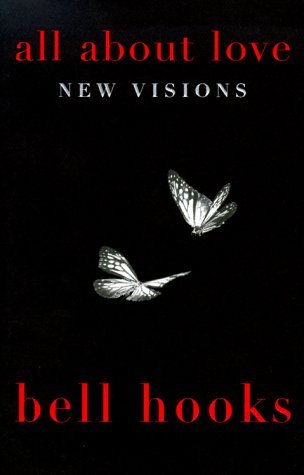 All About Love: New Visions by bell hooks (part of the Love Trilogy), December 1999. A Publisher’s Weekly review says of the book, “With an engaging narrative style, hooks presents a series of possible ways to reverse what she sees as the emotional and cultural fallout caused by flawed visions of love largely defined by men who have been socialized to distrust its value and power. She proposes a transformative love based on affection, respect, recognition, commitment, trust and care, rather than the customary forms stemming from gender stereotypes, domination, control, ego and aggression.”
All About Love: New Visions by bell hooks (part of the Love Trilogy), December 1999. A Publisher’s Weekly review says of the book, “With an engaging narrative style, hooks presents a series of possible ways to reverse what she sees as the emotional and cultural fallout caused by flawed visions of love largely defined by men who have been socialized to distrust its value and power. She proposes a transformative love based on affection, respect, recognition, commitment, trust and care, rather than the customary forms stemming from gender stereotypes, domination, control, ego and aggression.”
Playing In The Dark: Whiteness and the Literary Imagination by Toni Morrison, May 1992. You may know and love Morrison as a prolific author of fiction, but may have not realized she’s published nonfiction as well. In 1990, she delivered a series of three lectures at the Massey Lectures at Harvard University and then adapted them into this book. The book is described as “a persuasive work of literary criticism that promises to change the way we read American literature even as it opens a new chapter in the American dialogue on race.” In 2016, Time magazine noted that Playing in the Dark was among Morrison’s most-assigned texts on U.S. college campuses, together with several of her novels and her 1993 Nobel Prize lecture, making her one of the most-assigned of all female writers.
The March Trilogy by John Lewis, August 2013. Congressman John Lewis is an American icon, one of the key figures of the civil rights movement. To share his remarkable story with new generations, Lewis collaborated with co-writer Andrew Aydin and New York Times best-selling artist Nate Powell to create March, a graphic novel trilogy. “March is a vivid first-hand account of John Lewis’ lifelong struggle for civil and human rights, meditating in the modern age on the distance traveled since the days of Jim Crow and segregation. Rooted in Lewis’ personal story, it also reflects on the highs and lows of the broader civil rights movement,” (Amazon.com).
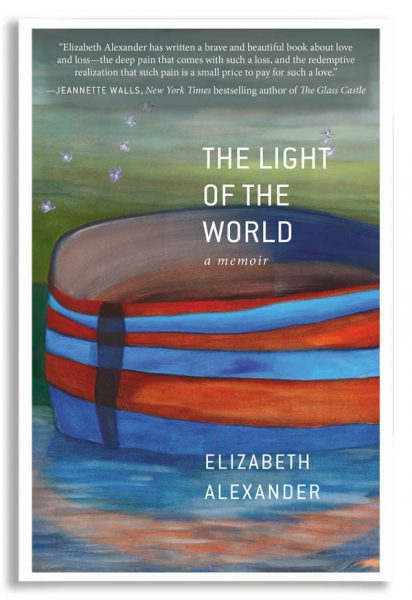
The Light of the World: A Memoir by Elizabeth Alexander, April 2015. The publisher says of this book, “In The Light of the World, Elizabeth Alexander finds herself at an existential crossroads after the sudden death of her husband… The Light of the World is at once an endlessly compelling memoir and a deeply felt meditation on the blessings of love, family, art and community. It is also a lyrical celebration of a life well-lived and a paean to the enduring gift of human companionship. For those who have loved and lost, or for anyone who cares what matters most, The Light of the World is required reading.” It just so happened to also be one of Michelle Obama’s favorite books that year, was a New York Times bestseller, and was a finalist for both the Pulitzer Prize: Biography award and the National Book Critics Circle: Autobiography award.